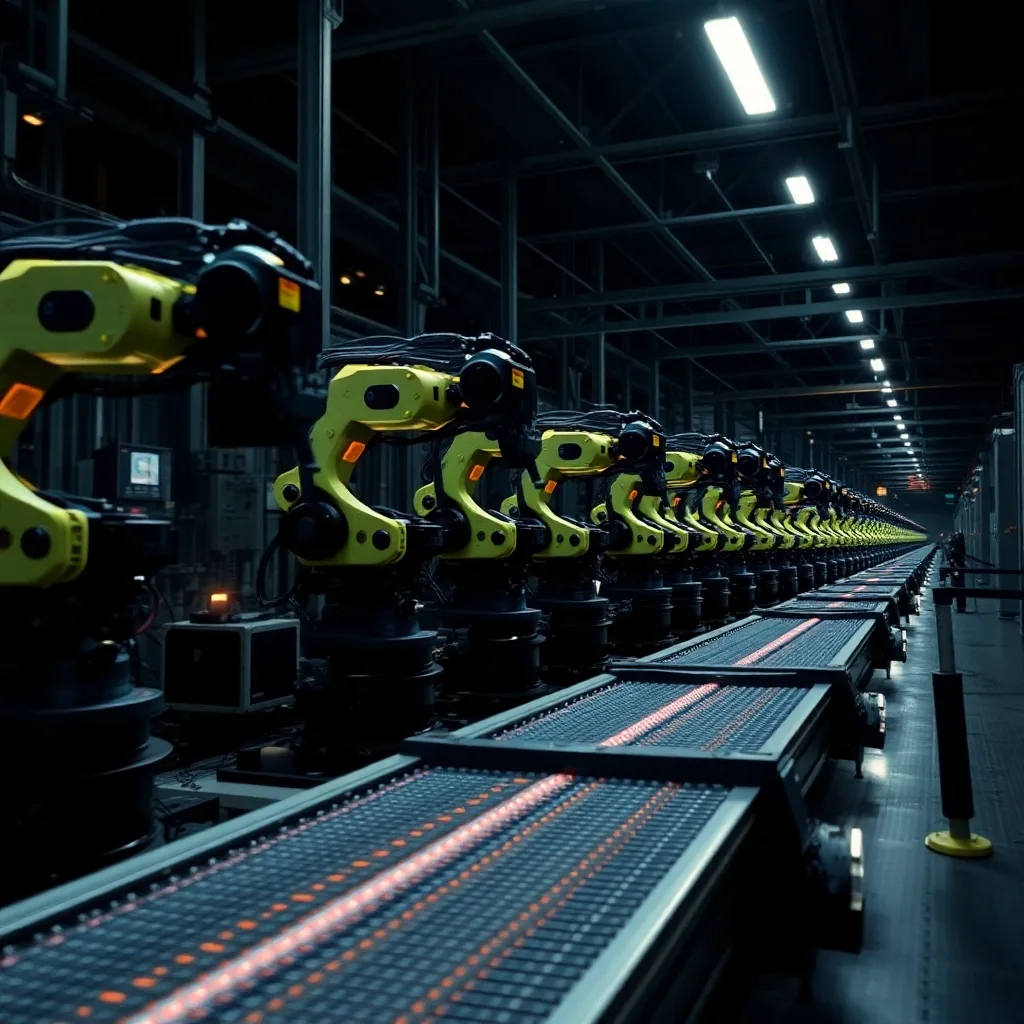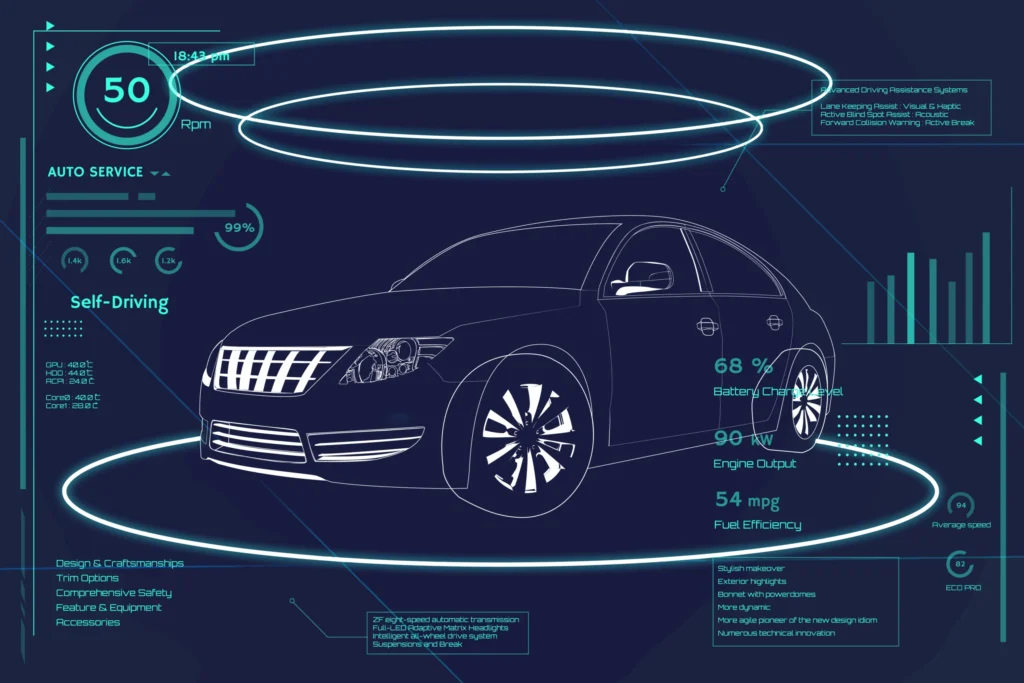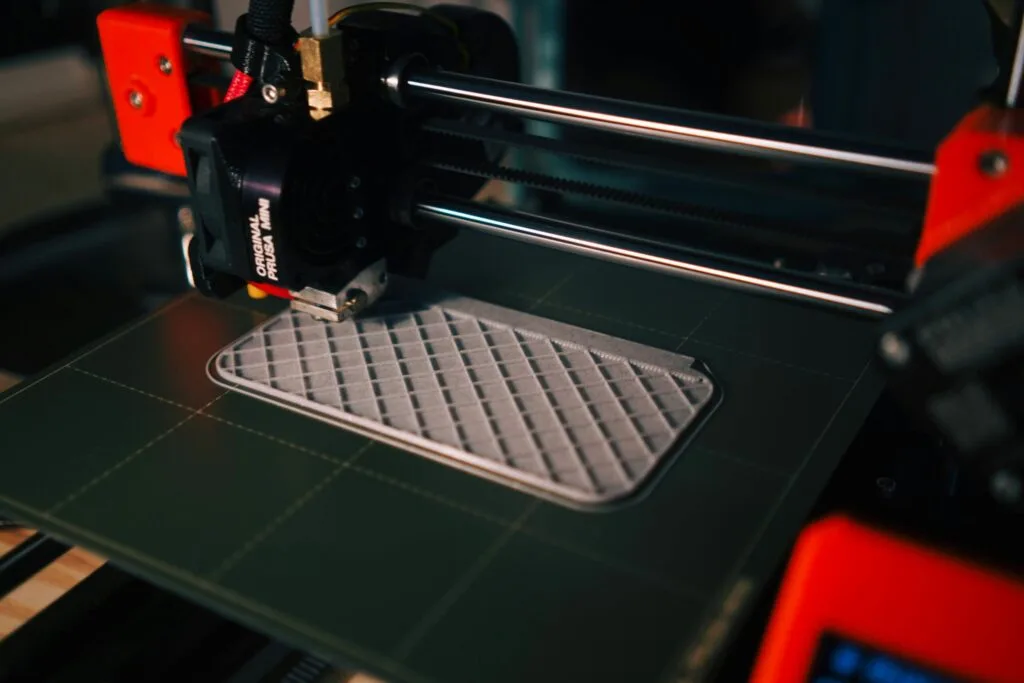Introduction to Artificial Intelligence in Industrial Engineering
Artificial Intelligence (AI) has emerged as a pivotal technology in various sectors, including industrial engineering, where it is reshaping traditional methodologies and practices. The concept of AI encompasses the development of computer systems that can perform tasks typically requiring human intelligence. These tasks include problem-solving, understanding natural language, and making decisions based on complex data sets. As the field of industrial engineering evolves, integrating AI into its processes has become essential for enhancing efficiency and innovating operational strategies.
The journey of AI began in the mid-20th century when pioneers like Alan Turing and John McCarthy laid the groundwork for machine learning and neural networks. Over the decades, significant advancements have propelled AI technologies into mainstream application. With the introduction of big data analytics and improved computing power, AI tools have become increasingly sophisticated, allowing for real-time data processing and intelligent automation across industrial sectors.
In the context of industrial engineering, AI has started to play a transformative role. It has not only simplified complex engineering problems but has also fostered enhanced decision-making capabilities, thereby allowing firms to optimize their operations. AI-driven systems can analyze vast amounts of data to identify patterns, predict equipment failures, and optimize supply chains, ultimately leading to significant cost savings and higher productivity. For instance, manufacturing facilities are embracing AI to implement predictive maintenance strategies, which can prevent unplanned downtime by forecasting equipment malfunctions before they occur.
Furthermore, the integration of AI into industrial processes promotes a culture of continuous improvement, driving engineers to develop innovative solutions that extend beyond traditional methodologies. As organizations strive to remain competitive in a rapidly changing market, the adoption of AI technologies serves not only as a catalyst for innovation but also as a crucial factor in enhancing operational efficiency and effectiveness.
The Role of AI in Process Optimization
Artificial Intelligence (AI) is redefining the landscape of industrial engineering, particularly in the realm of process optimization. The integration of AI algorithms and machine learning techniques allows organizations to enhance operational efficiency significantly. By analyzing vast amounts of data, AI can identify patterns and make informed decisions that optimize various industrial processes.
One of the key applications of AI in process optimization is predictive maintenance. Traditional maintenance schedules often lead to unnecessary downtime and increased operational costs. However, by employing machine learning models, companies can predict equipment failures before they occur. Sensors collect real-time data on machinery performance, which AI algorithms analyze to anticipate potential breakdowns. This proactive approach not only minimizes unplanned downtime but also extends the lifespan of equipment, yielding considerable cost savings.
Another area where AI demonstrates its impact is quality control. Advanced image recognition and machine learning algorithms enable real-time inspection of products during the manufacturing process. By employing AI-driven systems, manufacturers can detect defects with greater accuracy and speed compared to human inspectors. This not only ensures better quality products but also reduces waste, as defective items can be identified early and addressed before reaching customers.
Furthermore, AI contributes to enhanced inventory management practices. Machine learning algorithms analyze sales patterns, forecast demand, and optimize stock levels accordingly. This results in a more streamlined inventory process and minimizes excess stock, reducing carrying costs. By understanding the market dynamics using AI, companies can make informed decisions that significantly improve their supply chain operations.
As industrial engineering continues to evolve, the role of AI in process optimization becomes increasingly integral. With accurate predictive analytics and enhanced operational capabilities, organizations can realize substantial benefits, making AI a key component in modern industrial practices.
AI-Driven Automation in Manufacturing
The integration of Artificial Intelligence (AI) technologies within the manufacturing sector signifies a transformative shift in industrial engineering. By employing advanced robotics and automation software, manufacturers are effectively enhancing their workflows. AI-driven automation not only streamlines production processes but also redefines operational efficiency by enabling machines to perform repetitive tasks with greater precision and speed.
Robotics equipped with AI capabilities are capable of learning from their environments and making real-time decisions, which significantly reduces human intervention and the likelihood of errors. For instance, companies like Siemens have deployed AI-powered robots in their assembly lines to automate tasks ranging from material handling to quality control. These robots not only execute actions with remarkable accuracy but also gather data to inform continuous improvement efforts, thereby fostering a culture of innovation within production environments.
Another noteworthy example is Tesla, which has integrated advanced automation software to optimize its vehicle assembly process. AI systems manage task allocation, monitor equipment health, and predict maintenance needs, leading to reduced downtime and enhanced operational reliability. This seamless coordination has enabled manufacturers to scale up production capacity while ensuring that product quality remains uncompromised.
Moreover, AI-driven automation empowers manufacturers to adapt to changing market demands swiftly. By analyzing vast amounts of data, AI technologies can predict shifts in consumer preferences, allowing for agile responses to product modifications and inventory management. This dynamic adaptability positions manufacturers favorably in a competitive landscape, minimizing waste while maximizing productivity.
In summary, the infusion of AI technologies into manufacturing workflows not only automates repetitive tasks but also enhances precision, elevates operational efficiency, and increases production capacity. As industries continue to embrace these models, the potential for innovation and growth becomes increasingly significant.
Data Analytics and AI in Industrial Engineering
In the realm of industrial engineering, the integration of data analytics and artificial intelligence (AI) has become increasingly significant. As industries generate vast amounts of data from various processes, the ability to analyze this information effectively is paramount for enhancing operational efficiency and fostering innovation. AI tools play a crucial role in processing these large datasets, enabling organizations to extract valuable insights that drive informed decision-making.
The capability of AI to analyze complex datasets allows engineers to uncover patterns and correlations that might not be immediately evident. For instance, predictive analytics can forecast equipment failures or maintenance needs by evaluating historical performance data. This proactive approach not only minimizes downtime but also enhances overall productivity. Moreover, the real-time analysis of data can guide strategic decision-making by providing a clearer picture of performance metrics, allowing for adjustments and optimizations as needed.
Furthermore, data analytics, when paired with AI, can yield significant competitive advantages for organizations. By accurately forecasting market trends and consumer preferences, companies can align their resources more effectively, ensuring that production processes meet demand without excess. This increases agility within the supply chain and enables firms to respond swiftly to changes in market conditions.
In the context of industrial engineering, AI-driven data analytics transforms traditional methodologies. The enhanced capabilities facilitate more insightful business strategies and operational frameworks. As industries embrace this technology, the role of industrial engineers is evolving to include data stewardship and analytics expertise, making it essential for professionals to develop strong competencies in these areas. In conclusion, the synergy between data analytics and AI in industrial engineering is redefining the landscape, fostering smarter, more efficient operations.
Supply Chain Management Enhanced by AI
Artificial Intelligence (AI) has become a pivotal factor in the evolution of supply chain management, contributing significantly to optimizing various logistics processes. Through advanced algorithms and machine learning techniques, AI enables businesses to analyze large volumes of data, thus improving decision-making in demand forecasting. By predicting customer demand with greater accuracy, companies can effectively adjust their production schedules and inventory levels, minimizing both stockouts and excess inventory, which directly impacts efficiency and cost savings.
Moreover, AI applications extend to supplier selection and management. Through the evaluation of supplier performance data and market conditions, AI systems can assist organizations in identifying the most reliable suppliers. This approach enhances supplier relationships and ultimately leads to improved quality and consistency in the supply chain. Notably, AI can implement risk management strategies by analyzing historical data and predicting potential disruptions, enabling companies to proactively address issues before they escalate. This level of foresight not only safeguards the supply chain but also enhances overall resilience.
In addition to logistics and supplier management, AI significantly improves customer satisfaction within supply chains. Through smart algorithms, businesses can personalize their offerings and optimize delivery routes, ensuring that products reach customers in a timely manner. The integration of AI technologies facilitates a more responsive and customer-centric approach to supply chain operations. Furthermore, automation powered by AI streamlines repetitive tasks, allowing human resources to focus on higher-value activities, thereby enhancing overall productivity.
Ultimately, the transformative power of AI in supply chain management is evident in its ability to drive efficiency, reduce operational costs, and increase customer satisfaction. As industries continue to adopt these technologies, the landscape of supply chain management will likely evolve, leading to even greater innovations and improved business outcomes.
Challenges and Limitations of AI in Industrial Engineering
While Artificial Intelligence (AI) presents numerous opportunities for innovation and efficiency within the field of industrial engineering, there are several challenges and limitations that organizations encounter when integrating these technologies into their operations. One primary concern revolves around data security. As industrial systems increasingly rely on vast amounts of data to fuel AI algorithms, the potential for data breaches or cyber-attacks becomes a pressing issue. Organizations must invest in robust cybersecurity measures to protect sensitive information, which can add complexity and cost to their AI initiatives.
Another significant challenge is the need for skilled personnel. Implementing AI requires not only a solid understanding of the technology itself but also expertise in data analytics, machine learning, and domain knowledge relevant to the specific industrial processes. Currently, there is a shortage of professionals adequately trained in these areas, creating a talent gap that can hinder the effective deployment of AI solutions. Organizations may find themselves competing for a limited pool of skilled workers, increasing recruitment difficulties and associated costs.
Moreover, the implementation costs of AI technologies can be substantial. Beyond the initial investment in software and hardware, organizations often need to allocate resources for ongoing maintenance, training personnel, and updating systems. Small and medium-sized enterprises (SMEs) may find these costs prohibitive, limiting their ability to leverage AI, which could lead to a widening gap between larger corporations and smaller players in the industrial sector.
Finally, potential resistance to change among employees can also pose challenges to the integration of AI in industrial engineering. Employees may express concerns about job displacement or the need for significant retraining, which can lead to reluctance in embracing new technologies. Organizations must foster a culture of innovation and provide extensive training to ease this transition, ensuring that employees feel supported and empowered as they adapt to AI-enhanced workflows.
Future Trends of AI in Industrial Engineering
The future of artificial intelligence (AI) in industrial engineering promises transformative advancements that will redefine operational practices across sectors. One of the most significant trends is the integration of the Internet of Things (IoT), which connects machinery and systems to the internet, allowing for real-time data acquisition. This connectivity not only enhances monitoring capabilities but also facilitates predictive maintenance, where AI algorithms can analyze data collected from various sensors to schedule maintenance before equipment failures occur. This shift from reactive to proactive maintenance will lead to reduced downtime and lower operating costs.
Further advancements in robotics also stand to greatly benefit industrial engineering. Advanced robotics, supported by AI, allow for the automation of complex tasks that were traditionally performed by human workers. These robots are equipped with sophisticated sensors and machine learning algorithms, enabling them to adapt to changing environments and perform intricate processes with greater precision. Additionally, collaborative robots, or cobots, are designed to work alongside human operators, enhancing productivity while ensuring safety on the shop floor. This human-robot synergy is reshaping the workforce and promoting a more efficient manufacturing environment.
Moreover, the incorporation of AI in augmented reality (AR) offers groundbreaking applications in training and operational efficiency. AR can provide real-time overlays of information on physical equipment, guiding operators through complex procedures and troubleshooting issues as they arise. This technology not only aids in training new employees but also enhances the decision-making process for existing staff by providing immediate access to critical data. By harnessing the capabilities of AI-driven augmented reality, organizations can improve process accuracy and foster a more knowledgeable workforce.
In conclusion, as technologies like IoT, advanced robotics, and AI in augmented reality continue to evolve, they will fundamentally alter the landscape of industrial engineering. Embracing these innovations will enable industries to improve efficiency, reduce costs, and enhance the overall quality of their operations, positioning them competitively in the market.
Case Studies of Successful AI Implementation
The transformative potential of artificial intelligence (AI) in industrial engineering is exemplified through various real-world case studies across different sectors. These instances demonstrate how companies have successfully adopted AI technologies to enhance their operational efficiency, productivity, and quality of output.
One prominent case is that of General Electric (GE), which integrated AI into its manufacturing process. By employing predictive analytics, GE was able to monitor equipment performance in real time. The deployment of AI-driven algorithms allowed the company to anticipate and mitigate equipment failures, resulting in a 10% reduction in maintenance costs and a significant decrease in downtime. This proactive approach not only improved the operational efficiency but also ensured higher product quality, resonating with the company’s commitment to excellence in manufacturing.
Another significant example comes from Siemens, a leading player in the energy and automation sector. Siemens utilized machine learning algorithms in their supply chain management processes to optimize inventory levels and streamline logistics. By analyzing historical data and demand patterns, the company successfully reduced stock-outs and excessive inventory, leading to a remarkable 20% increase in overall supply chain efficiency. The success of this AI implementation illustrates the capabilities of machine learning in enhancing decision-making processes and operational workflows.
In the automotive industry, BMW has harnessed AI to revolutionize its production lines. The company has implemented AI-powered robotics that adapt to various assembly tasks, improving the flexibility of operations and allowing for customized vehicle production. This innovative approach has not only increased the speed of production but also cut down on waste, significantly improving sustainability metrics across their manufacturing plants.
These case studies from GE, Siemens, and BMW highlight the myriad ways in which AI is being integrated into industrial practices, yielding measurable improvements. As more organizations recognize the potential benefits of AI, these examples serve as valuable roadmaps for others seeking to leverage technology in their own operations.
Conclusion and Call to Action
As we have explored throughout this discussion, artificial intelligence (AI) is fundamentally altering the landscape of industrial engineering. From optimizing supply chain management to enhancing predictive maintenance, AI is providing tools that significantly improve efficiency and effectiveness within various engineering processes. The integration of machine learning and data analytics empowers engineers to make better-informed decisions and to anticipate potential challenges before they arise. This shift not only improves productivity but also helps in reducing operational costs, thereby enhancing the overall sustainability of industrial practices.
The transformative impact of AI in industrial engineering is evident in its ability to facilitate automation and streamline operations. Companies using AI-driven solutions are better equipped to adapt to the rapidly changing market dynamics, as they can analyze large volumes of data in real-time and gain actionable insights. Innovations such as smart factories and advanced robotics highlight how AI technologies are poised to revolutionize traditional engineering practices, paving the way for increased agility and responsiveness in project management.
It is crucial for industrial engineers and organizations to embrace these advancements. By incorporating AI technologies into their operational strategies, these professionals can unlock unprecedented potential in their industries. The future of industrial engineering lies in the capacity to leverage AI for not just enhanced productivity but also for innovation that drives competitive advantage. As such, a proactive approach towards adopting AI is necessary for those aiming to stay ahead in this evolving landscape. Organizations should consider investing in AI training and resources to cultivate a mindset that is open to exploration and adaptation, ultimately fostering a culture of innovation and excellence.



